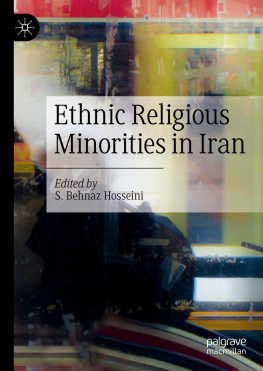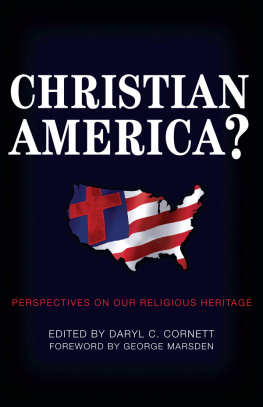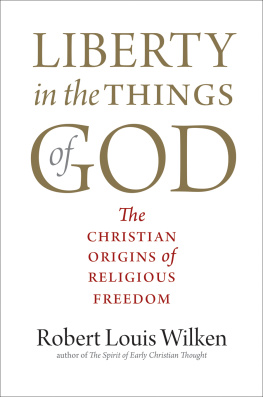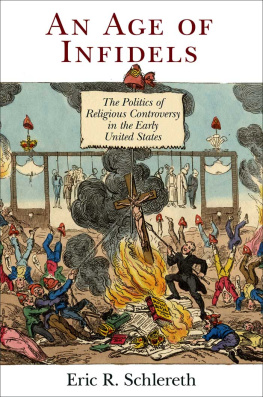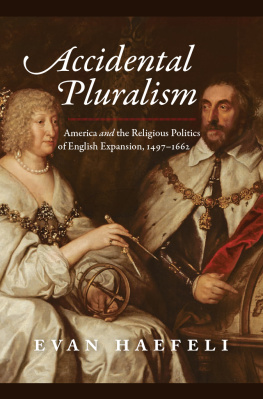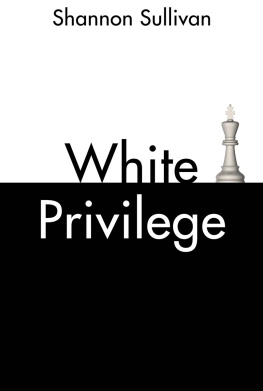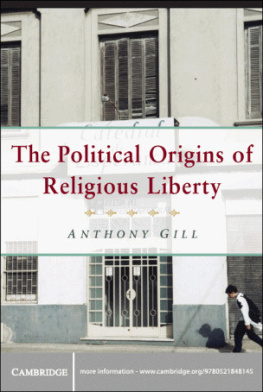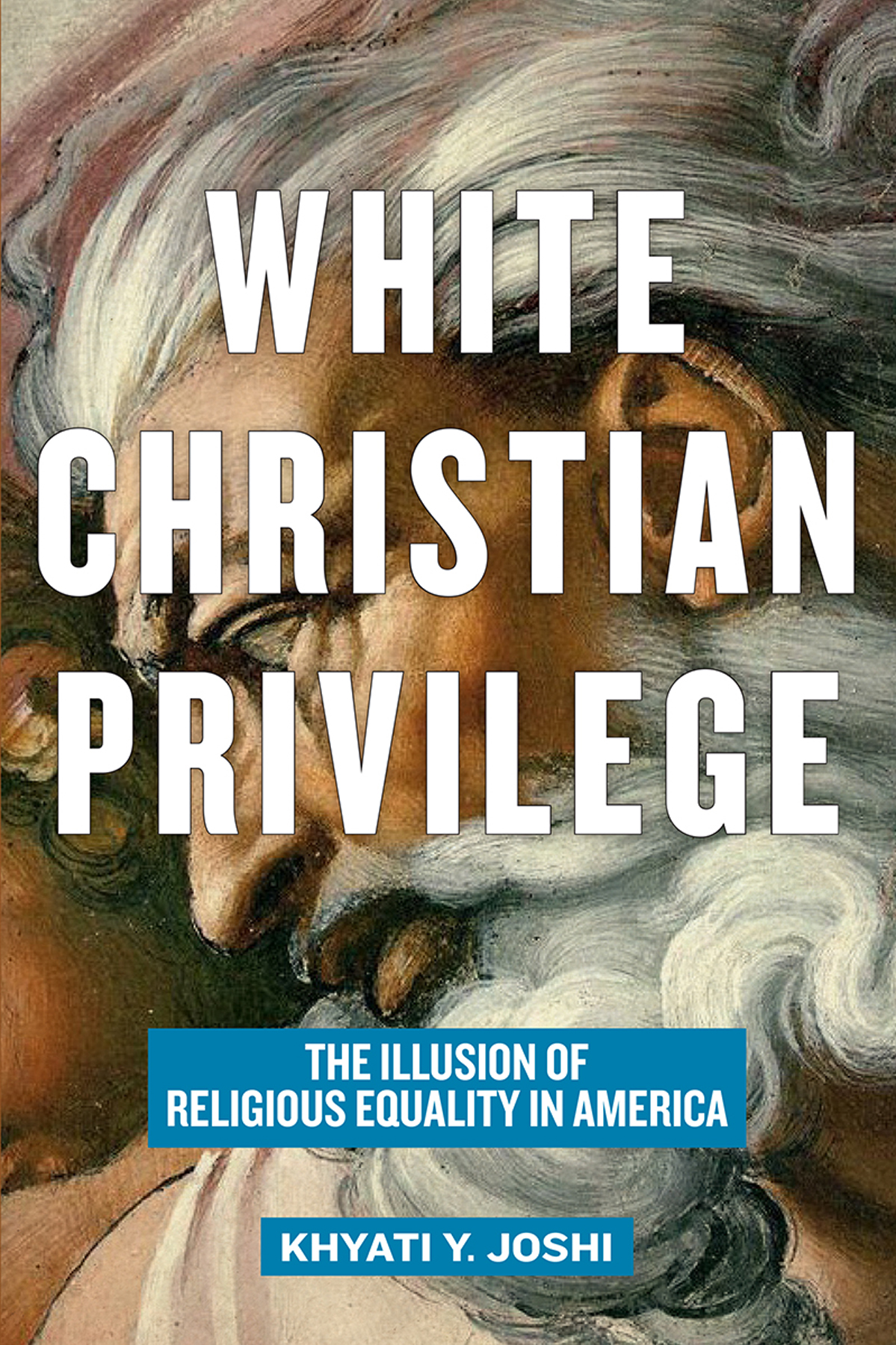
White Christian Privilege
White Christian Privilege
THE ILLUSION OF RELIGIOUS EQUALITY IN AMERICA
Khyati Y. Joshi

NEW YORK UNIVERSITY PRESS
New York
NEW YORK UNIVERSITY PRESS
New York
www.nyupress.org
2020 by New York University
All rights reserved
Paperback edition 2021
References to Internet websites (URLs) were accurate at the time of writing. Neither the author nor New York University Press is responsible for URLs that may have expired or changed since the manuscript was prepared.
Library of Congress Cataloging-in-Publication Data
Names: Joshi, Khyati Y., 1970 author.
Title: White Christian privilege : the illusion of religious equality in America / Khyati Y. Joshi.
Description: New York : New York University Press, 2020. | Includes bibliographical references and index.
Identifiers: LCCN 2019041467 | ISBN 9781479840236 (cloth) | ISBN 9781479835119 (ebook) | ISBN 9781479836468 (ebook) | ISBN 9781479812004 (paper)
Subjects: LCSH: ChristianityUnited States. | Religious discriminationUnited States. | Christianity and other religionsUnited States.
Classification: LCC BR 526 . J 67 2020 | DDC 305.6/773dc23
LC record available at https://lccn.loc.gov/2019041467
New York University Press books are printed on acid-free paper, and their binding materials are chosen for strength and durability. We strive to use environmentally responsible suppliers and materials to the greatest extent possible in publishing our books.
Manufactured in the United States of America
10 9 8 7 6 5 4 3 2
Also available as an ebook
for Kedhar Wallace Bartlett
may this book help us all build
a more perfect union for you
Contents
Introduction
A pervasive Christian privilege prevails in the United States today. The United States is recognized as the most religiously diverse country in the world; yet, at the same time, Christianityparticularly Protestantismhas been integral to US national identity. Christian beliefs, norms, and practices, and indeed, a Christian way of looking at the world, infuse our society, enjoying countless legal, structural, and cultural supports whose roots reach back to the arrival of Europeans and the founding of the country. Protestant perspectives have become the truths at the bedrock of American society. Christianity dominates by setting the tone and establishing the rules and assumptions about who belongs or does not belong, about what is acceptable and not acceptable in public discourse. It is embedded in our institutions and dictates the structure of our weekend, from Sunday closings for the Christian Sabbath to alcohol sales laws. As a result, the freedom of religion enshrined in the pages of the Constitution does not always translate into everyday life. Christian prayer often opens public meetings and graduations all over the US, and the US Congress and state legislatures have always employed chaplains. Christianity has become bound up with US nationalism, with the inscription In God We Trust on our currency and our pledge to a nation under God. This Christian privilege, which undergirds our countrys institutions and cultural practices, offers advantages to Christians as they lead their lives, and disadvantages for members of minority religious groups.
This book explains how the effects of this privilege are acted out in our society and provides a historical and contemporary overview of how Christian privilege was created and why it has persisted. It demonstrates that Christian privilege in the United States has always been entangled with notions of White supremacy. Indeed, throughout US history, Christian, English, free, and White have been superimposed to form mutually supporting advantages based on the co-construction of religion, race, and national origin. These advantagesand corresponding disadvantages, for religious and racial minorities as well as for the nonreligiouspersist at both the institutional and individual levels of society, and stand in the way of fulfilment of the promises of equality that were made in the nations founding documents and more recent laws. Yet, unlike racism, gender discrimination, or homophobia, Christian privilege often flies under the radar. It is so ingrained in our societal dynamics, it continues to be taken as normal. By shining a light on Christian privilege and its entwinement with White privilege, this book aims to equip readers with tools and ideas regarding how they can recognize it operating in our society and foster a more equitable environment for all.
Todays religious and racial diversity requires that we do far more than just appreciate and embrace it or consider the ways individual experiences shape us. A social justice approach, in which we create change and mitigate bias, requires us first to recognize present circumstances as the product of historyof long and deeply-ingrained patterns and structures of advantage and disadvantage. This book sets out to examine the cultural, institutional, and legal infrastructure on which the experiences of Christians and religious minorities today have been built. Ultimately, it offers a historically informed road map of how Christian privilege developed and has influenced the American experiment from colonial times to the present. Drawing on interviews and personal narratives, it illuminates the impact of White Christian privilege in our workplaces, classrooms, and broader society, and offers strategies to expose and overcome its dynamics.
The book takes a hard look at three specific, related, and mutually supporting phenomena in the US: Christian privilege, Christian normativity, and Christian hegemony. Christian privilege is experienced at the individual level, in the everyday; it is manifest in unearned advantages that Christians receive and in the corresponding disadvantages religious minorities, atheists, and agnostics must deal with on an everyday basis. Many people think about bias and discrimination as dynamics that happen between two people. It can be easy to recognize a religious slur like kike or dothead as bias. We are conditioned to see bias most easily at the individual and interpersonal level, which makes it easy to think that if we all were to treat people with respect and kindness, bias would stop being a problem.
But theres far more to it than individual cruelty. At the level of our society and culture, Christian privilege is structural. It has afforded the Christian majority the historic and contemporary power to shape social norms. This Christian normativity makes Christian values intrinsic to our national identity, conveys the status of truth and rightness on Christian culture, and makes Christian language and metaphors and their underlying theology the national standard. Christian normativity imbues Christianity with a unique power, situating it as ordinary and expected. As a result, atheists and religious minorities who embrace different practices, belief systems, and world views are disadvantaged relative to their Christian peers. Very real everyday consequences result from a situation in which the Christian way of doing something comes to be understood as the normal way of living.
Consciously or unconsciously, we may perceive practices outside the Christian norm as exotic or illegitimate. God, for example, is most often depicted in nonreligious settings, in line with Christian imaginings, as an old White man with a flowing beard. We might also see Christian figures like Jesus and the Virgin Mary representing the divine. Yet it is exceedingly unlikely that in a setting that is not explicitly Hindu, for example, we will encounter a representation of God as the Hindu God Krishna, with his blue skin, or as the four-armed Saraswati, Goddess of knowledge, wisdom and learning, or as other Hindu Gods with their colorful clothing and multiarmed bodies. Christianitys images of God are perceived as normal images of God because of Christianitys cultural sway. The God images of other faiths may be regarded as idolsweird or cultic in comparison.


